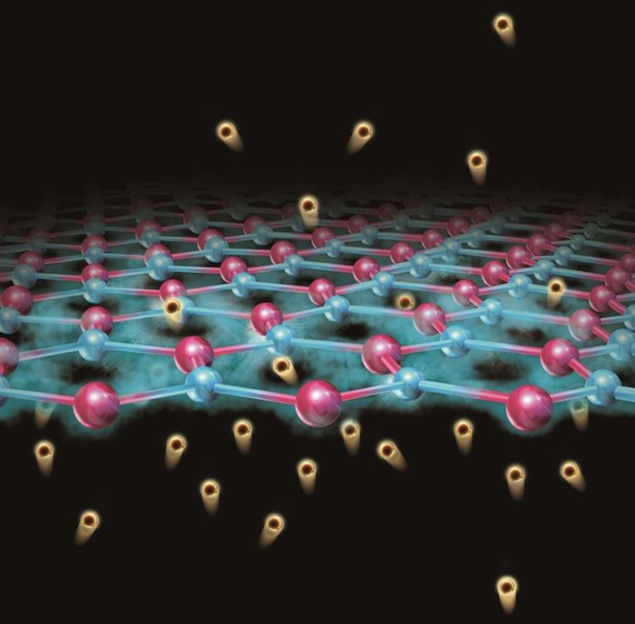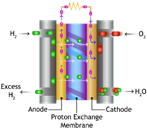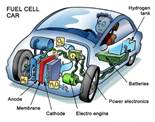A newly published article entitledA tomically-thin Micas as Proton Conducting Membranes in Nature Nanotechnology shows that atomically-thin micas, a type of common mineral found in soil are highly permeable to protons. As proton conductors are key parts to fuel cells and hydrogen-related technologies, this discovery may help promote the development of fuel cell cars and other green technologies considering that micas as promising proton conducting membranes are abundant in availability and low in cost.

Proton transport through mica membranes (Source:https://physicsworld.com/a/thick-mica-membranes-make-excellent-proton-conductors/)
The research was conducted by an international team including Professor Zhang Sheng from Tianjin University, Sir Andre Geim from the University of Manchester and other researchers from Tsinghua-Berkeley Shenzhen Institute, Dalian University of Technology and the University of Antwerp.
In their recent study published in Nature Communications (Perfect Proton Selectivity in Ion Transport Through Two-dimensional Crystals), the team proved that one-atom thick graphene is 100% permeable to protons. “This research not only improves our understanding of the interaction between ions and atomically-thin crystals, but also sheds light on the applications of graphene as membrane materials.” Prof. Zhang Sheng said.
However, the researchers found that graphene has a quite high energy barrier for proton transport that diminishes proton conductivity greatly. The team continued their study researching better proton conducting materials. After they exchanged the native potassium ions in micas with protons 100 thousand times smaller in size, Prof. Zhang and his collaborators discovered that few-layered micas are much more permeable to protons compared with graphene. “The proton conductivity in atomically-thin micas is even 10 to 100 times higher than in graphene.” Prof. Zhang reported.
What’s more, micas are found to be highly conductive in a temperature range from 100℃ to 200℃, which is the optimum operation range for high temperature proton exchange membrane (PEM) fuel cells. According to Prof. Zhang, at 150℃,the proton conductivity of mica membranes can be twice as much as the current commercial industrial requirements.


Structure of a proton exchange membrane fuel cell (left) and a fuel cell car (right)
(source: https://web.stanford.edu/group/frankgroup/research_topic_3.html)
(source:https://commons.wikimedia.org/wiki/File:Fuelcell.jpg)
Currently Prof. Zhang’s research team at Tianjin University are working on producing large-scale mica membranes suitable for industrial conditions, hoping to facilitate the development of fuel cell cars.
By Eva Yin
Editor: Doris Harrington






